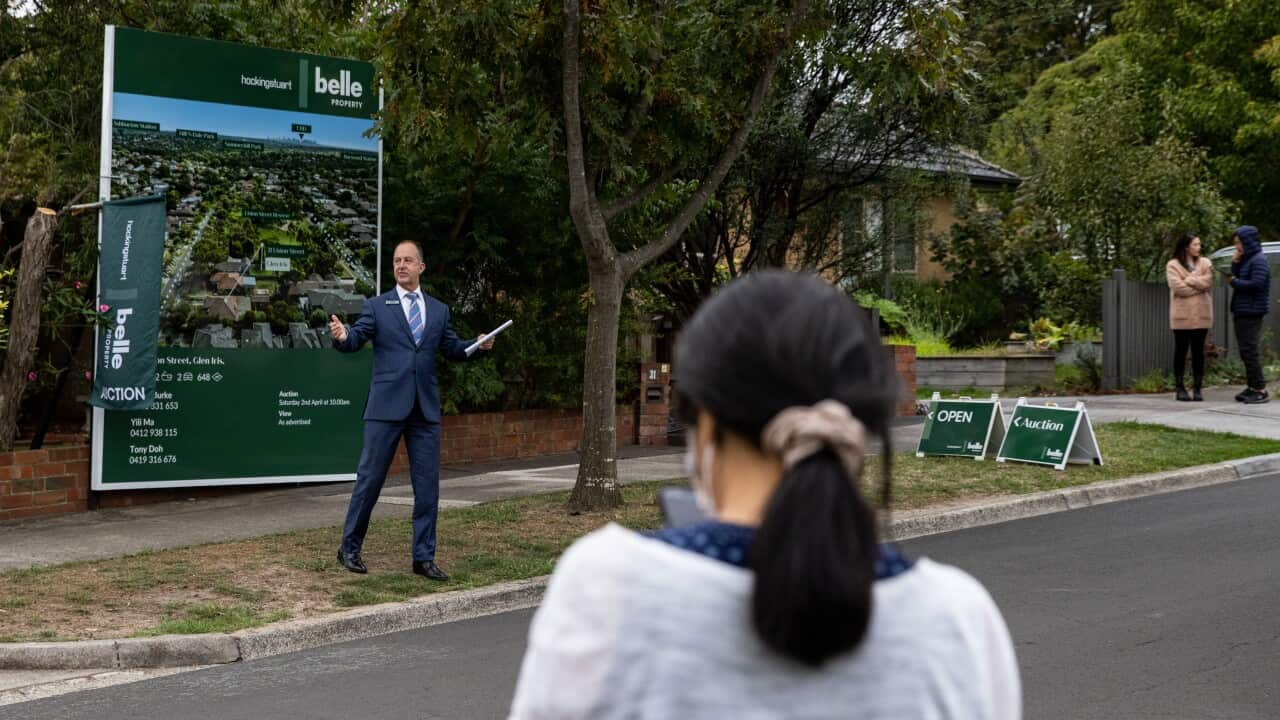KEY POINTS:
- Jim Chalmers has flagged major changes to Australia's superannuation scheme.
- The treasurer describes Coalition's early access schemes as "disastrous".
- But the Coalition says changes will undermine first home buyers.
Treasurer Jim Chalmers has flagged sweeping changes to Australia's , which could see strict limits imposed on withdrawals.
The retirement savings scheme was a major policy fault line under the previous Coalition government, which expanded the reasons that Australians could dip into their funds during the COVID-19 pandemic.
In a speech to the sector in Sydney on Monday, Mr Chalmers promised to ensure the system was reserved for funding Australians in retirement.
He described as "contradictory, sometimes counterproductive, and often costly".

Treasurer Jim Chalmers has promised to end a political war centred on superannuation. Source: AAP / Lukas Coch
But the Coalition says early access to super is a vital avenue to home ownership, and has protected Australians from the worst economic effects of the COVID-19 pandemic.
The treasurer's comments could also have major implications for the tax breaks enjoyed by the major super funds.
So what is he suggesting, and what could it mean for you?
Limiting super withdrawals
Labor wants to block Australians from withdrawing money from their superannuation funds.
Mr Chalmers attacked the Coalition for its "disastrous" approach to super over the last decade, saying it had undermined Australians' standard of living in retirement.
The government is looking to create a legally-binding definition of super to clarify its purpose, which could limit the ways it's used in future.

Mr Chalmers described the former government's super policies as 'disastrous'. Source: AAP / Bianca De Marchi
But Coalition financial services spokesperson Stuart Robert framed the move as an attempt to line the super industry's pockets at the expense of first home buyers.
"The Coalition ... [is] concerned more about the dignity of the individual. And what can be more dignified than an individual Australian owning their own house?" he said on Monday.
"And frankly, what can be more undignified than a super fund using your money to buy a house that you have to rent?"
How can you currently withdraw super?
You can currently take out from your super fund for many reasons, including paying for dental care and repaying a home loan.

Australians can currently withdraw early super for a range of reasons, including to pay for dental care. Source: AAP
The minimum withdrawal is set at $1,000, the maximum at $10,000.
What's the context?
Superannuation was a major battle line under the last government.
The former Coalition government proposed allowing first home buyers to dip into their super, a move which would have allowed Australians to invest 40 per cent of their super savings - up to $50,000 - to help them enter the property market.
The policy, announced just before the last election, drew an immediate rebuke from now-Prime Minister Anthony Albanese, who framed it as an assault on Australians' retirement savings.
It was the last in a long series of policy brawls over super.
Australians were also allowed to raid up to $20,000 from their super accounts - in individual blocks of $10,000 - if they were experiencing hardship during COVID-19. That saw around $36 billion plucked from Australian super funds during the first few years of the pandemic.
While there are some exceptions, super withdrawals had previously been tightly restricted. The last three years became the first major emptying of accounts since the retirement scheme was established in the early 1990s.
But the treasurer's nod to "equitable and sustainable" system could have implications for the tax breaks super funds enjoy, given he has previously promised to consider whether current concessions are manageable.
The budget is under pressure, and projections suggest Australia will be spending more on tax concessions than the pension by 2050.
Australians have more than $3 trillion saved in super, and Labor promised to clarify what it can be used for before the last election.










